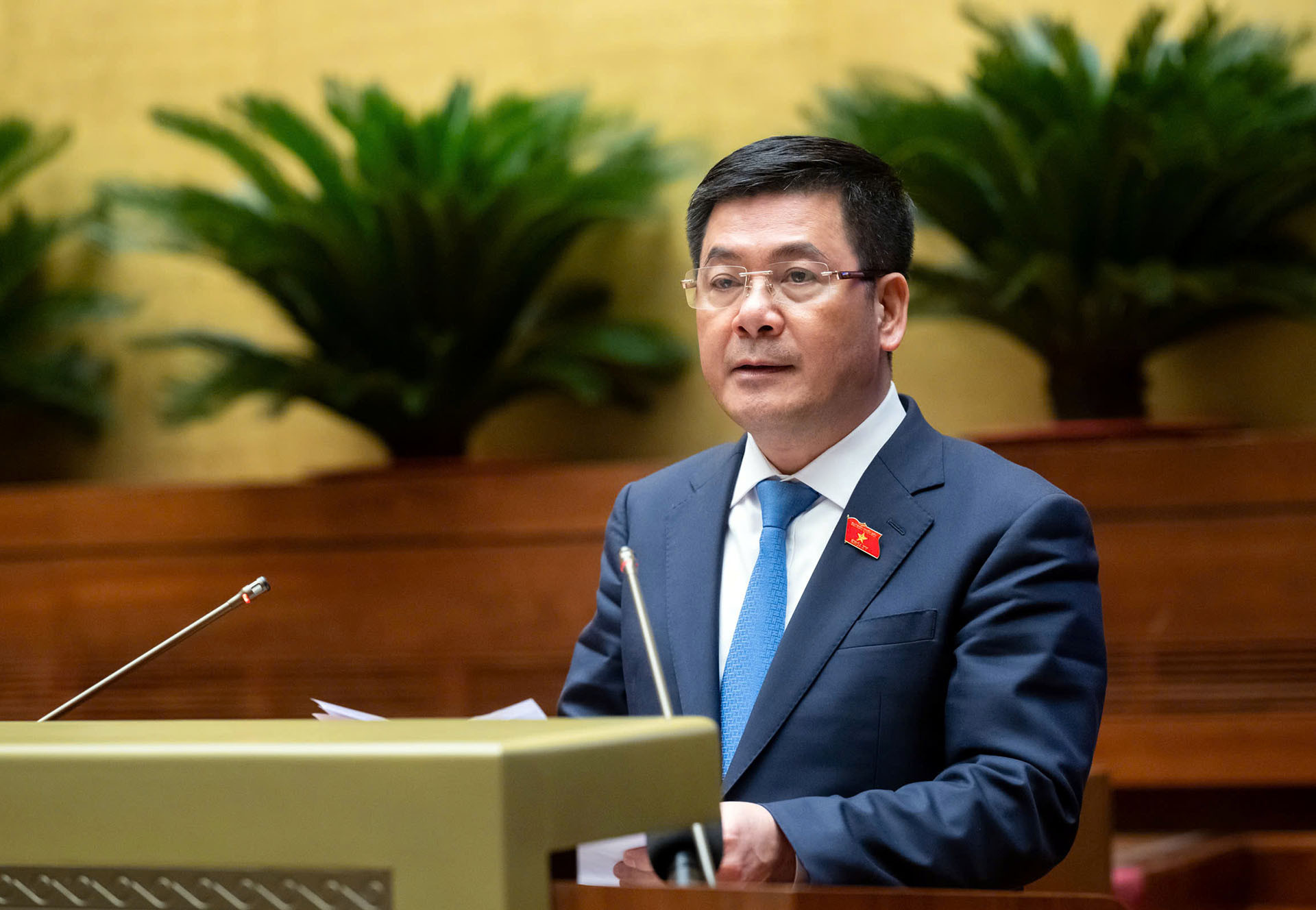On October 21, authorized by the Prime Minister, Minister of Industry and Trade Nguyen Hong Dien presented the draft amendment to the Electricity Law to the National Assembly.

No special interests in the amended electricity law
According to Mr. Dien, the 2004 Electricity Law, in effect for nearly two decades, has exposed issues that need revising to meet practical demands and ensure coherence with related laws.
"This draft law contains no content contrary to the Constitution. It is transparent, with no policies that contradict the Party's guidelines or state law, and no special interest groups or biased benefits," said Minister Nguyen Hong Dien.
A key addition in the proposed amendments addresses nuclear power development. The government suggests state monopoly on investment in nuclear power plants due to their importance to national security.
Investments in construction, operation, and the decommissioning of nuclear power plants must comply with the Law on Atomic Energy and related regulations.
The draft mandates that nuclear power projects utilize modern, proven technology to ensure the highest safety standards. Moreover, depending on socio-economic conditions at different times, the law allows the Prime Minister to apply a special mechanism for investment, construction, and operation of nuclear power plants.
Nuclear power planning is integrated into the national power development plan to ensure energy security.
The National Assembly's Science, Technology, and Environment Committee, while reviewing the draft, emphasized that nuclear power is a new area within the proposed law. Therefore, the Ministry of Industry and Trade must seek approval from higher authorities on including and specifying this content in the law.
Additionally, the review committee suggests that all state monopoly areas be carefully examined, limiting regulations only to those crucial for energy security, encouraging social investment, reducing public spending, and increasing efficiency in state management.
Electricity pricing based on market mechanism
The draft also proposes that electricity pricing follow a market mechanism, with state regulation to encourage efficient energy use. It aims to rationalize electricity pricing, gradually eliminating cross-subsidies between customer groups and regions, especially between residential and industrial users.
The pricing mechanism would also be tailored to customer groups with high consumption and emissions, including accommodations and industrial facilities. The government will prioritize the development of charging stations for green transportation.
Electricity prices are to remain public, transparent, and equitable, ensuring no discrimination between electricity providers, allowing companies to set purchase and sale prices within state-regulated frameworks.
The review committee generally agrees with the electricity development policies but seeks clarification on specific elements such as the feasibility of implementing these policies, particularly regarding electricity prices and the elimination of cross-subsidies. They suggest adding policies on environmental protection and climate change mitigation.
The Ministry of Industry and Trade has provided some clarifications, but several issues remain unresolved. For instance, regarding electricity prices, there are no clear rules to ensure transparency in price components, including subsidies for policy beneficiaries and remote areas.
The Ministry of Industry and Trade has asked the National Assembly to consider and pass this law in one session (at the 8th session of the 15th National Assembly).
However, the review committee recommends passing the law over two sessions—presenting it for discussion during the 8th session and passing it at the subsequent session.
Quang Phong